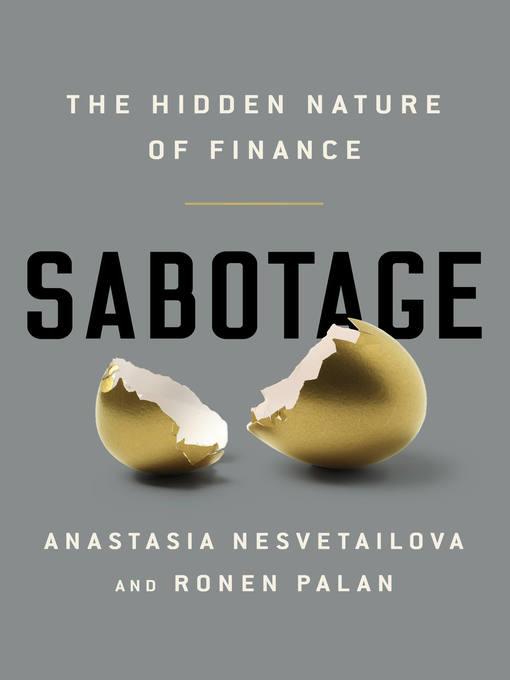
Sabotage
The Hidden Nature of Finance
کتاب های مرتبط
- اطلاعات
- نقد و بررسی
- دیدگاه کاربران
نقد و بررسی

November 25, 2019
The finance industry profits not by making productive investments but through fraud and other crimes, according to this provocative yet haphazard exposé. Nesvetailova and Palan, economists at City, University of London, rehash a litany of misdeeds by financial institutions: Goldman Sachs sold clients investment deals it knew would lose money; Wells Fargo created accounts for clients without their knowledge and charged them extra fees; HSBC helped Mexican drug cartels launder money; mortgage lenders signed up unqualified borrowers and sold the bad mortgages to unsuspecting investors; and banks and insurance companies concocted murky financial instruments like credit default swaps and collateralized debt obligations to bamboozle investors, and used a variety of methods, including Cayman Islands shelters and bitcoin, to evade regulations and taxes. Nesvetailova and Palan argue that these scams and dodges aren’t the work of a handful of bad actors or the effects of deregulation, but a form of “sabotage” of competitive financial markets that companies must undertake to earn profits. Their evidence for this theory is anecdotal, however. Meanwhile, their explications of byzantine banker cons are sometimes unclear, and their case for a return to New Deal–style financial regulation is short on specifics. Though the authors don’t produce the most substantive critique of the financial sector, their ideas about the industry’s intrinsic tendencies towards malfeasance will stimulate progressive readers with a strong interest in the subject.

November 15, 2019
Two London-based economics professors argue that banks make much of their profit not by serving depositors and borrowers fairly but rather by cheating. Nesvetailova (Financial Alchemy in Crisis: The Great Liquidity Illusion, 2010, etc.) and Palan (The Offshore World: Sovereign Markets, Virtual Places, and Nomad Millionaires, 2003, etc.) explain that they chose the title after extensive consideration about its explosive implications. As the authors clearly show, the institutions highlighted in the book--Goldman Sachs, Wells Fargo, Royal Bank of Scotland, Bear Stearns, Deutsche Bank, among others--act dishonestly with their clients, their competitors, and their national governments as a matter of everyday operations. Even if they observe the letter of the law, they rarely observe the spirit of the law. At times, note the authors, the cheating crosses into the realm of criminal conduct. Of course, greed underlies much of this behavior; operating honestly can lead to lower-than-desired earnings and limited bonuses. Government regulators become so focused on maintaining the financial stability of the banks--an admirable goal--that unsavory practices go unnoticed or at least mostly unpunished. The authors look backward for much of their evidence, relying heavily on the economic theories of American economist and sociologist Thorstein Veblen and on a congressional investigation from the 1930s led by Sen. Ferdinand Pecora. Nesvetailova and Palan state that the findings from the Pecora investigation closely resemble banking industry sabotage that is widespread in the current markets. As the authors consider reform, they insist that everybody involved must abandon the traditional binary dichotomy of "market vs. regulation." The dilemma of excessive profitability should become the core of how to proceed with reform. They close with a series of "simple but important intellectual steps towards a more adequate regulatory framework." The last step is "to stop thinking about finance as a business for managing 'other people's money.' Finance is the business of creating and managing our wealth, and it needs to be understood and regulated as such." Useful reading for readers seeking a mostly accessible overview of the banking industry.
COPYRIGHT(2019) Kirkus Reviews, ALL RIGHTS RESERVED.

























دیدگاه کاربران